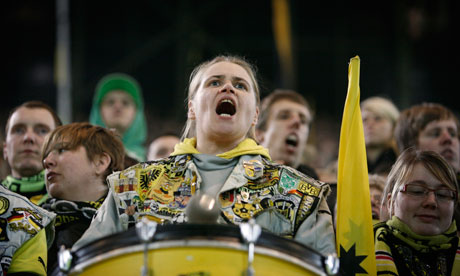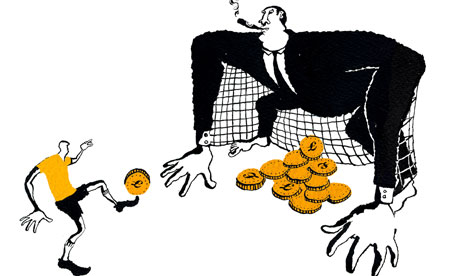At 10pm last Thursday night, Jonny Gould took to the stage in the ballroom at London’s Dorchester Hotel. “Welcome to the most un-PC event of the year,” he roared.
Mr Gould — who presented Channel 5’s Major League Baseball show — was there to host a charity auction, the centrepiece of a secretive annual event, the Presidents Club Charity Dinner.
The gathering’s official purpose is to raise money for worthy causes such as Great Ormond Street Hospital, the world-renowned children’s hospital in London’s Bloomsbury district.
Auction items included lunch with Boris Johnson, the British foreign secretary, and afternoon tea with Bank of England governor Mark Carney.
But this is a charity fundraiser like no other.
Auction lots included a lunch with foreign secretary Boris Johnson and former England cricketer Ian Botham.
It is for men only. A black tie evening, Thursday’s event was attended by 360 figures from British business, politics and finance and the entertainment included 130 specially hired hostesses.
All of the women were told to wear skimpy black outfits with matching underwear and high heels. At an after-party many hostesses — some of them students earning extra cash — were groped, sexually harassed and propositioned.
The event has been a mainstay of London’s social calendar for 33 years, yet the activities have remained largely unreported — unusual, perhaps, for a fundraiser of its scale.
The questions raised about the event have been thrown into sharp relief by the current business climate, when bastions of sexual harassment and the institutionalised objectification of women are being torn down.
The Financial Times last week sent two people undercover to work as hostesses on the night. Reporters also gained access to the dining hall and surrounding bars.
Over the course of six hours, many of the hostesses were subjected to groping, lewd comments and repeated requests to join diners in bedrooms elsewhere in the Dorchester.
Hostesses reported men repeatedly putting hands up their skirts; one said an attendee had exposed his penis to her during the evening.
WPP, the FTSE 100 advertising conglomerate, sponsored a table at the event as it has in previous years. Martin Sorrell, chief executive, was not present this year — though he has attended in the past.
Andrew Scott, its chief operating officer for Europe, hosted the table in his absence. Other table sponsors included CMC Markets, the UK-listed spread betting company, and Frogmore, the London-based real estate investment business.
A seating plan for last week’s event seen by the FT listed those due to attend as including well-known British business figures such as Philip Green of Arcadia Group, Dragons’ Den star Peter Jones, and Ocado boss Tim Steiner.
Financiers on the seating plan included Henry Gabay, founder of hedge fund Duet Group, and Makram Azar, the head of Barclays’ investment bank’s Middle East business. From the world of politics were Nadhim Zahawi, newly appointed undersecretary of state for children and families, and Jonathan Mendelsohn, a Labour peer and party fundraiser. It is not clear whether those listed all turned up on the night.
The comedian David Walliams was the host for the evening. Previous attendees have included Michael Sherwood, a former vice-chairman of Goldman Sachs, and Poju Zabludowicz, a Finnish real estate billionaire and Conservative party donor.
Current and past supporters provide a roll call of British wealth and business influence: patrons include high-end developer Nick Candy; former Formula 1 magnate Bernie Ecclestone; and TV presenter Vernon Kay. CMC Markets founder Peter Cruddas is also a regular attendee.
The event has a laudable fundraising aim with prestigious prizes offered for auction. During the three decades The Presidents Club has been running, it has raised more than £20m for charity. Thursday’s event alone raised more than £2m.
The organisation’s charitable trust has two joint chairmen: Bruce Ritchie, a Mayfair property developer who founded Residential Land, and David Meller, from the luxury good specialist Meller Group, who also sits on the board of the Department for Education and the Mayor’s Fund for London.
But the auction offers a hint of the evening’s seedier side. Lots included a night at Soho’s Windmill strip club and a course of plastic surgery with the invitation to: “Add spice to your wife.”
The accompanying brochure included a full-page warning that no attendees or staff should be sexually harassed. The glossy auction catalogue distributed to attendees during the evening included multiple images of Marilyn Monroe dressed in revealing, tight dresses.
The nature of the occasion was hinted at when the hostesses were hired. The task of finding women for the dinner is entrusted to Caroline Dandridge, founder of Artista, an agency specialising in hosts and hostesses for what it claims to be some of the “UK’s most prestigious occasions”.
At their initial interviews, women were warned by Ms Dandridge that the men in attendance might be “annoying” or try to get the hostesses “pissed”. One hostess was advised to lie to her boyfriend about the fact it was a male-only event. “Tell him it’s a charity dinner,” she was told.
“It’s a Marmite job. Some girls love it, and for other girls it’s the worst job of their life and they will never do it again . . . You just have to put up with the annoying men and if you can do that it’s fine,” Ms Dandridge told the hostess.
Two days before the event, Ms Dandridge told prospective hostesses by email that their phones would be “safely locked away” for the evening and that boyfriends and girlfriends were not welcome at the venue.
The uniform requirements also became more detailed: all hostesses should bring “BLACK sexy shoes”, black underwear, and do their hair and make-up as they would to go to a “smart sexy place”. Dresses and belts would be supplied on the day.
For those who met the three specific selection criteria (“tall, thin and pretty”) a job paying £150, plus £25 for a taxi home, began at 4pm.
The backgrounds of the dozen or more hostesses met by reporters were varied: many were students, hoping to launch careers as lawyers or marketing executives; others juggled part-time jobs as actresses, dancers or models and did occasional hostessing work to make ends meet.
Upon arrival at the Dorchester, the first task given to the hostesses was to sign a five-page non-disclosure agreement about the event. Hostesses were not given a chance to read its contents, or take a copy with them after signing.
At first, hostesses were assembled in the Dorchester’s Orchard Room, where a team of hair and make-up artists prepped women for the evening ahead. During the pre-event preparations, some of the women new to hostess work sought advice from those with more experience. The feedback was mixed.
A number of the hostesses seemed excited about the evening ahead. It was a fun night, they said, especially as — unlike most hostessing assignments — you could drink on the job.
One experienced hostess acknowledged that a portion of the men were likely to be “arseholes”, but said others were “hilarious”. “It really depends on the luck of the draw,” she added.
Others were more apprehensive. One woman who had last worked at the event five years ago sighed to herself: “I can’t believe I’m here again.”
Towards 7pm, during a staff buffet dinner, Ms Dandridge entered wearing a smart black suit and gave a briefing; she said if any of the men became “too annoying”, the hostesses should contact her.
Hostess uniforms were distributed — short tight black dresses, black high heels and a thick black belt resembling a corset. Once dressed, the hostesses were offered a glass of white wine during the final countdown to their entrance into the ballroom.
As the 8pm start time approached, all of the hostesses were told to form two lines in height order, tallest women first, ready to parade across the stage as music began to boom across the venue: “Power”, by British girl band Little Mix.
Entering in twos from opposite sides on to a stage positioned at the front of the ballroom, hostesses presented themselves to the men before walking towards their allocated tables alongside dinner guests. This continued until all 130 women were spread across the room.
With the dinner properly under way, the hostess brief was simple: keep this mix of British and foreign businessmen, the odd lord, politicians, oligarchs, property tycoons, film producers, financiers, and chief executives happy — and fetch drinks when required.
A number of men stood with the hostesses while waiting for smoked salmon starters to arrive. Others remained seated and yet insisted on holding the hands of their hostesses.
It was unclear why men, seated at their tables with hostesses standing close by, felt the need to hold the hands of the women, but numerous hostesses discussed instances of it through the night. For some, this was a prelude to pulling the women into their laps. Meanwhile champagne, whisky and vodka were served.
On stage, entertainers came and went. It was soon after a troupe of burlesque dancers — dressed like furry-hatted Coldstream Guards, but with star-shaped stickers hiding nipples — that one 19-year-old hostess, recounted a conversation with a guest nearing his seventies: who had asked her, directly, whether she was a prostitute. She was not. “I’ve never done this before, and I’m never doing it again,” she said later. “It’s f***ing scary.”
According to the accounts of multiple women working that night, groping and similar abuse was seen across many of the tables in the room.
Another woman, 28, with experience of hostess work, observing the braying men around her said this was significantly different to previous black tie jobs. At other events, men occasionally would try to flirt with her, she said, but she had never felt uncomfortable or, indeed, frightened.
She reported being repeatedly fondled on her bottom, hips, stomach and legs. One guest lunged at her to kiss her. Another invited her upstairs to his room.
Meanwhile, Artista had an enforcement team, made up of suited women and men, who would tour the ballroom, prodding less active hostesses to interact with dinner guests.
Outside the women’s toilets a monitoring system was in place: women who spent too long were called out and led back to the ballroom. A security guard at the door was on hand, keeping time.
At 10pm, the main money-raising portion of the evening got under way: the charity auction, where the lots on offer ranged from a supercharged Land Rover to the right to name a character in Mr Walliams’ next children's book.
Richard Caring, who made his fortune in the retail sourcing business before scooping up a long list of London’s most fashionable restaurants, including The Ivy and Scott’s, rounded off the money-raising portion of the evening with a successful £400,000 bid to place his name on a new High Dependency Unit at the Evelina London children’s hospital for sick children.
It was a moment of respite for the women, most of whom had been allowed to return to the Orchard Room. Some were excited to have been offered jobs by men in the room. Others had been offered large tips, which they had been obliged to decline. One woman struggled to re-apply her eyeliner. “I’m so drunk,” she said apologetically, blaming tequila shots at her table.
The women filed back into the ballroom at 11pm for the final hour of the main event, which would be followed by an “after-party” elsewhere in the hotel.
Most hostesses had been told they would be required to stay until 2am. One was told that this final leg of the evening offered a chance to drink what she wanted and seek out those men she found “most attractive”.
The after-party was held in a smaller room off the main lobby at the Dorchester, packed tight with guests and women.
According to the 28-year-old hostess, while men danced and drank with a set of women on one side of the room, a line of younger women were left seated on a banquette at the back of the room, seemingly dazed. “They looked shocked and frightened, exhausted by what had happened,” she said.
Meanwhile, in the centre of the room, Jimmy Lahoud, 67, a Lebanese businessman and restaurateur, danced enthusiastically with three young women wearing bright red dresses.
“You look far too sober,” he told her. Filling her glass with champagne, he grabbed her by the waist, pulled her in against his stomach and declared: “I want you to down that glass, rip off your knickers and dance on that table.”
In a statement the Dorchester said it had a zero-tolerance policy regarding harassment of guests or employees. “We are unaware of any allegations and should we be contacted we will work with the relevant authorities as necessary,” it said.
The Presidents Club said: “The Presidents Club recently hosted its annual dinner, raising several million pounds for disadvantaged children. The organisers are appalled by the allegations of bad behaviour at the event asserted by the Financial Times reporters. Such behaviour is totally unacceptable. The allegations will be investigated fully and promptly and appropriate action taken.”
Ms Dandridge of Artista stated: “This is a really important charity fundraising event that has been running for 33 years and raises huge amounts of money for disadvantaged and underprivileged children’s charities. There is a code of conduct that we follow, I am not aware of any reports of sexual harassment and with the calibre of guest, I would be astonished.”
None of the trustees of the charity provided a comment for publication.
Harvey Goldsmith, a former trustee, said he was “gobsmacked” by the accounts of sexual harassment taking place at the event. “I’m totally shocked to be quite frank,” he said.
The BoE said: “The Bank of England did not approve any prize for auction on the occasion described nor would it have for that organisation under its guidelines for charitable giving.”
Mr Walliams declined to comment.
Mr Caring said he “was not aware of any of the alleged incidents”.
Barry Townsley, a well-known stockbroker and lifetime president of The Presidents Club who helped to set up the charity, said he had not attended the dinner for a decade. He added that it was previously “very nice and civilised” and a “mild-mannered charity”. “What goes on now is not my business,” he said.


